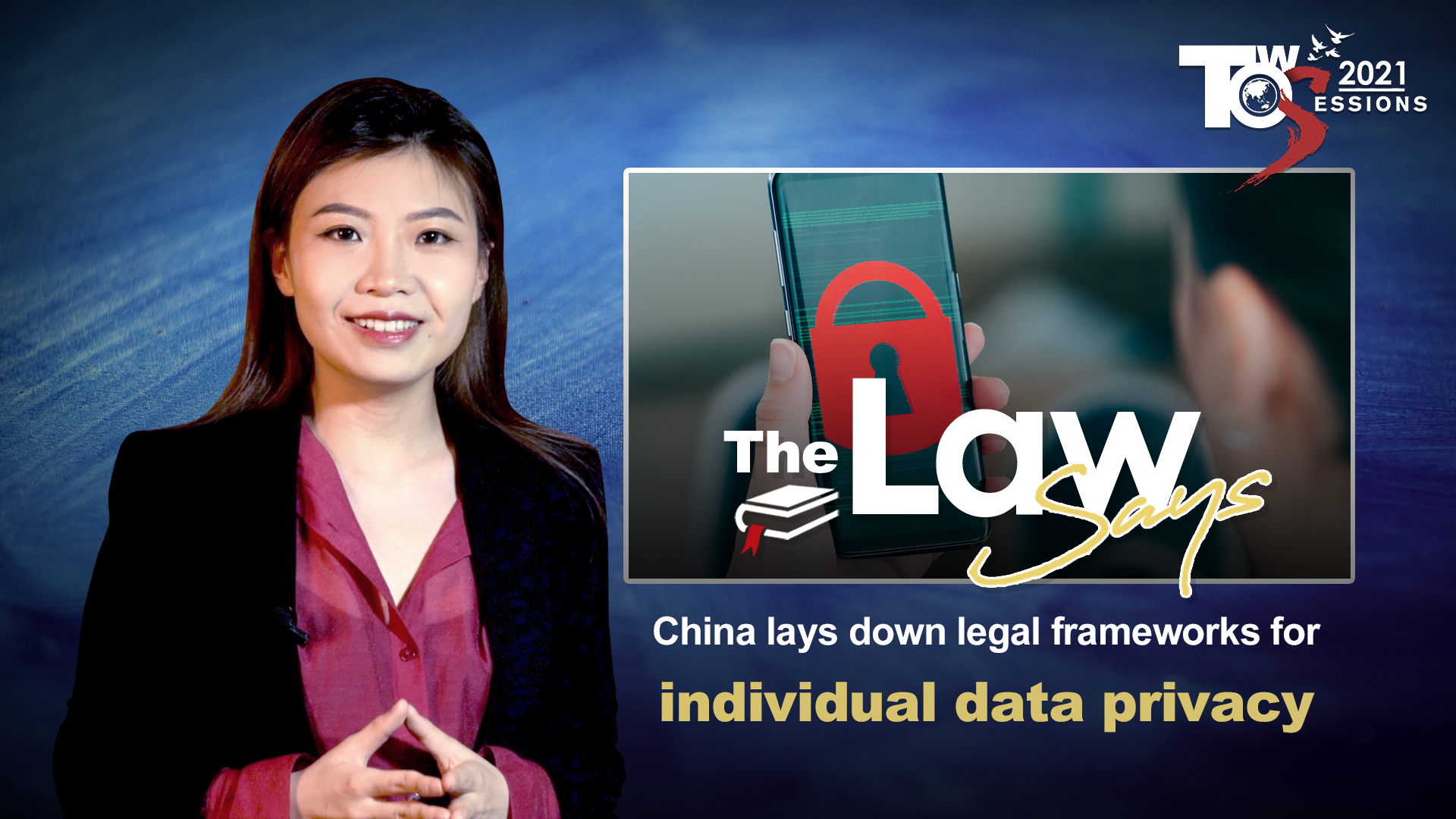03:36

(Editor's note: "The Law Says" is a CGTN original series that hopes to provide a better understanding of China's Civil Code – enacted on January 1, 2021 – through the eyes of legal observers and ordinary Chinese people.)
Have your ever received spam calls or junk mail?
You might not have given those companies your contact information, but, for some reason, they just knew it. And they even have your exact address, where you work, what you've purchased, and sometimes, they even know your parent's name.
It means that your personal data has been leaked.
"I've never searched for these things, but they just popped up on the app accurately. That is very weird to me," one pedestrian told CGTN in a street interview last week.
For a time here in China, legal control measures have lagged behind the pace of technological and social development.
Privacy defined statutorily for the first time in Civil Code
Thanks to China's newly adopted Civil Code, privacy is defined statutorily for the first time.
According to Article 1032 of the Code, privacy is defined as "the undisturbed private life of a natural person" and "his private space, private activities, and private information that he doesn't want to be known to others.”
Specifically, "the undisturbed private life" stresses one's right to life tranquility. "Can someone knock on my door every day without my permission? No, you can't just disturb me at any time. Can your ex-boyfriend or girlfriend just message you or spam-call you? Also no," Assistant Professor Zhu Wei of China University of Political Science and Law explained.
According to Zhu, a violation of privacy rights not just takes place in private areas; it can also happen in public or even online.
The duty of data collectors is also highlighted in the Civil Code. They can't process one's private information without their permission.
"Sometimes when one's act of leaking others' privacy has not reached the level to be punished under the Criminal Law, (people can) seek help from the civil laws," Vice President of Renmin University Wang Yi told Science and Technology Daily.
Experts warn further clarifications needed
As more and more people go digital, the Civil Code has made a first major step for the Chinese' privacy rights. But experts are warning that further explanation is needed for clarification, for example, what exactly constitutes private information?
"The Civil Code was put together by the Civil Law Department of the Legislative Affairs Commission (of the Standing Committee of the National People's Congress) while the Personal Information Protection Law was put together by the Economic Law Department. And the judicial interpretation is conducted by the Supreme People's Court. So, they are all within different systems," Zhu said. "In the future, we will need to address whether we should integrate those laws, whether it's civil law-related or administrative law-related."
"Otherwise, legal scholars are confused now. If we are talking about sensitive information, what sensitive information under which law are we talking about?" he explained.
Still, Zhu believes it takes time to go into further details. "There must be a gradual process," he said.
According to a work report by China's top legislature released on Monday, Beijing will formulate a personal information protection law in 2021, and that, according to Zhu, will help clarify the legislation.
Scriptwriter: Li Zhao
Reporters: Wu Chutian, Wang Xiaoxiao
Camerawoman: Huang Yichang
Video editor: Zhao Yuxiang
Cover photo designer: Gao Hongmei
Chief editor: Lin Dongwei
Producer: Chen Ran
Executive producer: Si Nan
Supervisor: Zhang Shilei

